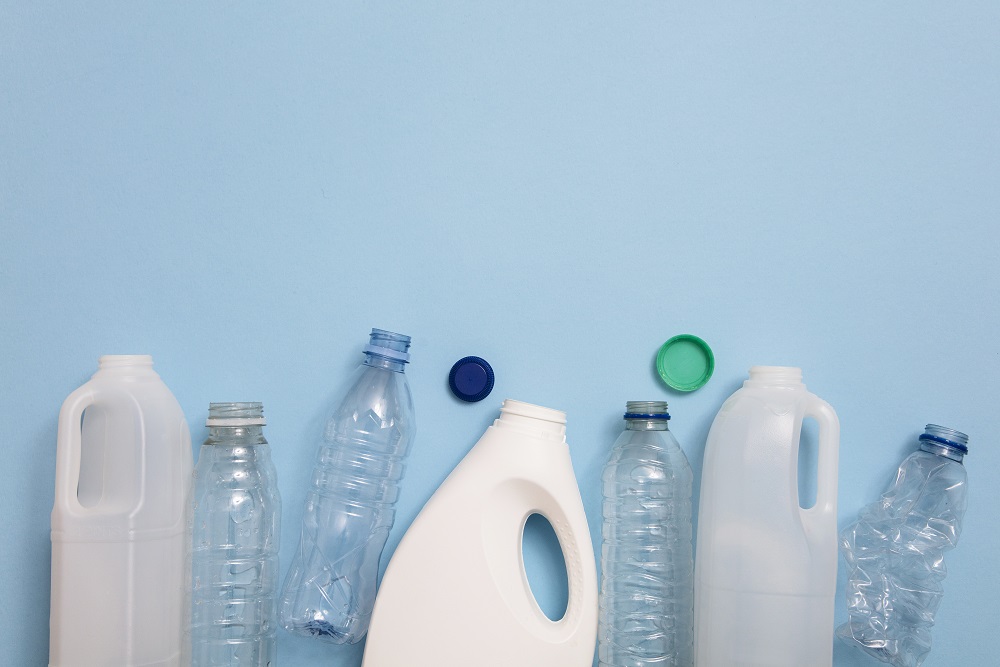
Top view of rubbish for recycling on a blue background
Imagine a farmer in need of an implement for his tractor. It is an old machine, so he is unable to buy the implement from a manufacturer. He could hire a machine shop to custom build it for him, or he could build it himself. If he had a 3D printer, maybe he could make it out of plastic.
A project currently being worked on at the UK’s Loughborough University is transforming scrap plastic bottles into custom tools using 3D printing technology. The project runs through to December 2021. Its point is to benefit local African farmers while simultaneously studying and improving plastic recycling through 3D printing.
1. Have Plastic, Will Build
Farmers are industrious people who have no trouble custom building implements and tools. It is part of their nature. And while some of the implements and tools they need have to be made with metal in order to stand up to significant punishment, other implements and tools could be made with plastic.
The nice thing about plastic is that it is easy to work with. Thanks to 3D printing, just about anything you could design with printing software can be made reality. The researchers at Loughborough have done just that. They have taken plastic bottles collected in Kenya, Nigeria, and Rwanda and used them to create sand dredges, fruit pickers, and even devices to bail water from boats.
Each piece has been custom designed to meet the specific needs of its eventual owner. Designs were fed into a computer and brought to life with a 3D printer.
2. Recycling Plastic Bottles
It is not clear how the bottles were recycled, but the plastics industry has a pretty standard process for doing so. For example, Seraphim Plastics is a Tennessee company that recycles baled PET bottles, among other things. The baled bottles are shredded and chopped to create plastic regrind. The regrind is mixed with virgin plastic pallets to create new products. Who knows? Some of their regrind could have already been used in the UK project.
The key to recycling plastic bottles is to collect them cleanly. In other words, recyclers want loads that are entirely bottles and nothing else. They do not want bottle caps and plastic rings. They don’t want #1 and #7 plastics mixed in with the PET. A load of clean PET bottles not mixed with, or contaminated by, anything else is gold to them.
3. The Most Recycled Plastic in the World
It turns out that PET is the most recycled plastic in the world. That is because it is easy to work with and has a ton of viable uses. PET scrap has been transformed into everything from new water bottles to sneakers and sunglasses.
If only all our household plastics were made of PET. Then our curbside recycling programs might have some real value. As things currently stand, this is not the case. PET is easily recycled, but other consumer plastics are not.
This explains why Seraphim does not collect and recycle household plastics. The only consumer plastic they deal with his PET, and that’s only in the form of already-baled bottles. All the other plastics they buy and recycle are considered post-industrial scrap.
The UK project has demonstrated the viability of customized plastic pieces made using 3D printer technology. It is too inefficient to go large-scale at the current time, but there is always the possibility that 3D printing will advance enough to scale up considerably. And if that’s the case, custom-made plastic pieces will be everywhere. Then we might see enough demand for recycled plastic to not have to throw away as much.